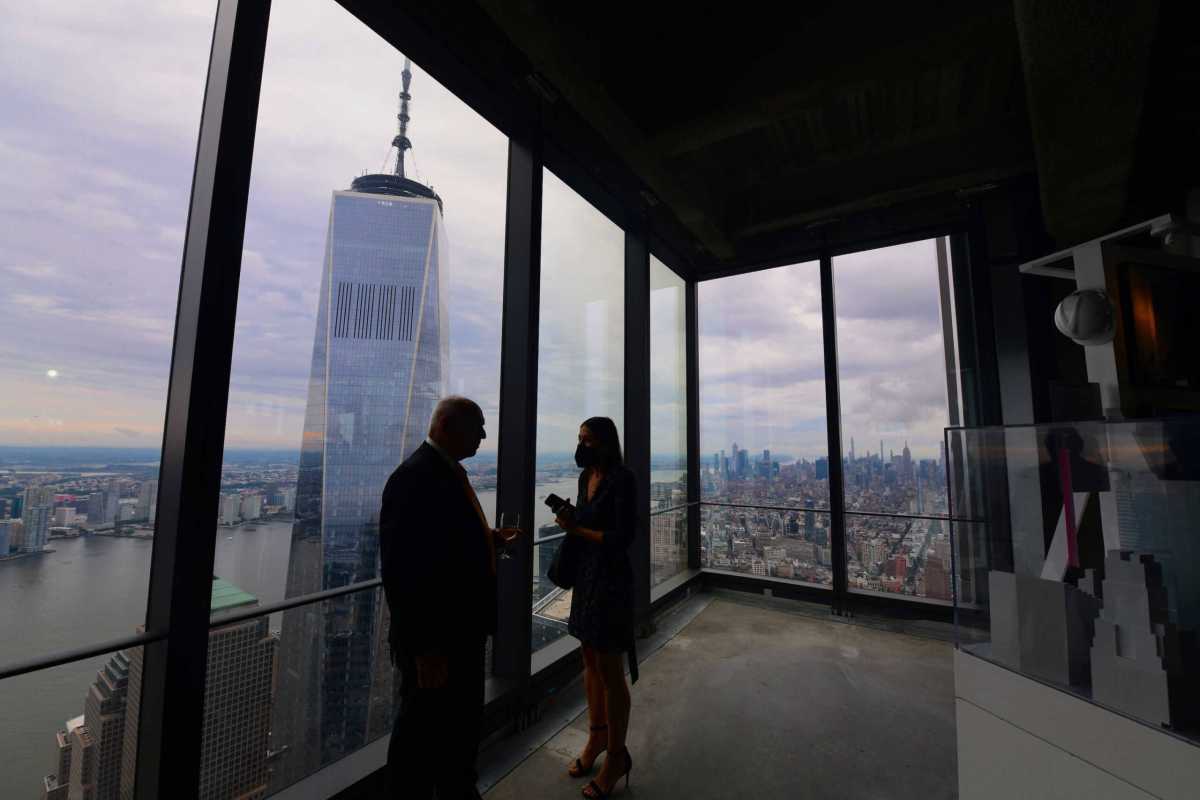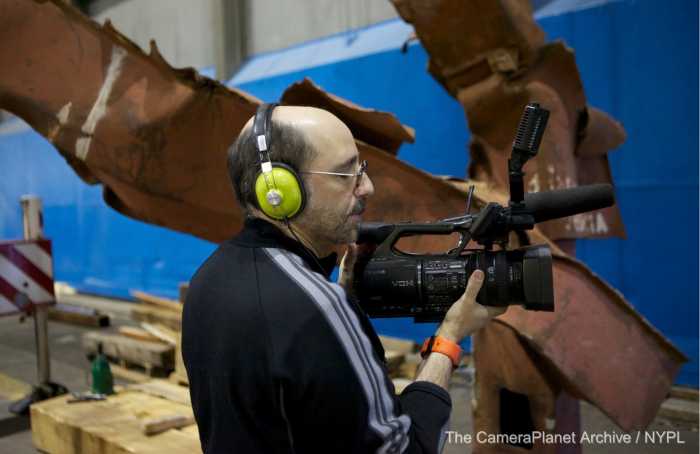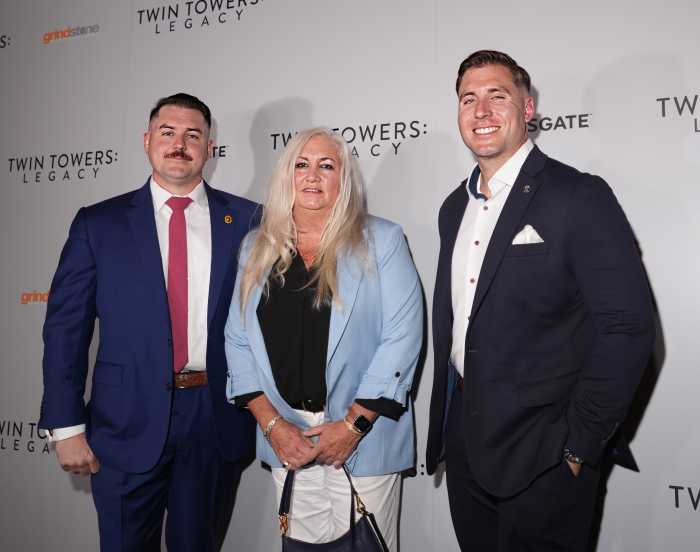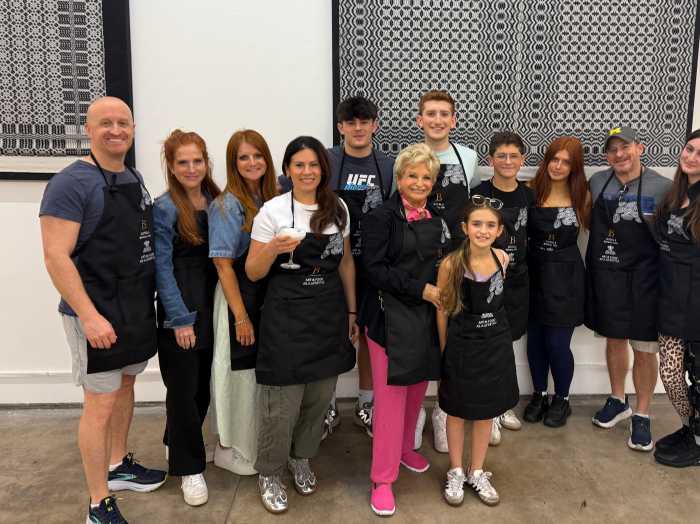On the 20th anniversary of the tragedy, several Windows on the World workers reunited to honor the lives lost, and advocate for a fair wage in the future.
Over 70 employees from the Windows on the World restaurant — which had occupied the 106th and 107th floors of the North Tower — died after becoming trapped above the impact zone where hijacked American Airlines Flight 11 hit.
At that time 20 years ago, the federal minimum cash wage for tipped workers was $2.13. Activists pointed out Saturday, the 20th anniversary of the 9/11 attacks, that it remains the same $2.13 today.
Former Windows worker Fekkak Mamdouh said that at his last shift, he never thought that would be the last time he walked into tower one at the World Trade Center.
“I lost three important things: I lost my brothers and sisters that worked with me, I lost my sense of security and safety,” Mamdouh said, adding that he had to hide his identity as a Muslim in the weeks and months after the attack.
He later formed ROC-United, the first national restaurant worker organization, and is now the senior director of One Fair Wage.
“We can’t just name their names and light candles anymore,” said Saru Jayaraman, president of One Fair Wage and host of the event. “Only by changing the industry and ending the scourge of a sub minimum wage, can we truly honor who they are.”
Though, they did take turns lighting candles for the coworkers they lost.
One Fair Wage gathered the Windows alums on the roof of the Color of Change office just blocks from One World Trade, with speakers including former Secretary of State Hillary Clinton, Senator Chuck Schumer, Public Advocate Jumaane Williams and many more showing their support for an increased minimum wage.
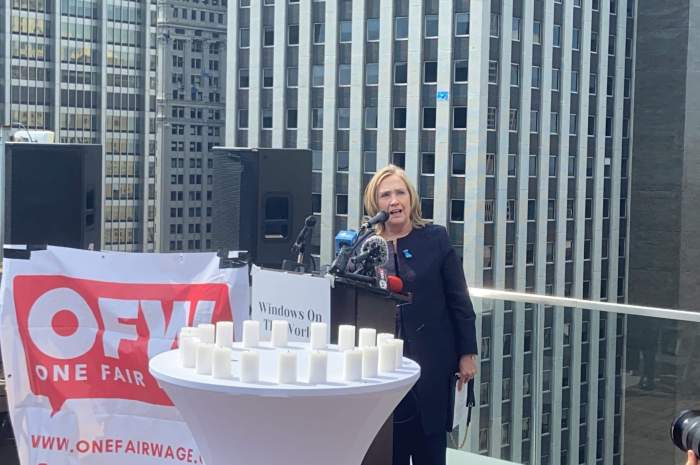
The working conditions and low wages combined with the demographics of the industry alarmed leaders like Williams. “You show me an industry that is primarily Black, brown, immigrant women, I’ll show you an industry where people aren’t paid what they’re supposed to be paid, and probably in substandard conditions,” said Williams.
Jayaraman contended that low wages for tipped workers are a continuation of slavery, based on historical record of tipped workers being paid zero dollars and relying only on tips.
“And we went from zero in 1938 to $2.13 today … That is a shame,” Jayaraman said.
The support that restaurant workers need, speakers noted, comes up during every crisis. Workers sought help from One Fair Wage after Hurricane Katrina, and now during the COVID-19 pandemic. Both times, they stressed that the main issue was that they needed wages to live.
Senator Schumer added to that perspective, saying “The reason there’s a shortage of workers in restaurants is that restaurants don’t treat workers well.”
Raising wages, benefits and health care opportunities will bring workers back, Schumer said.
Former Secretary Clinton also thanked the former Windows workers for turning their loss into an ongoing movement for better wages.
“Every one one of us will do everything we can to make that so,” Clinton said.
Queens state Senator John Liu was recognized for his long time support of One Fair Wage, and spoke on how many workers in the aftermath were treated as collateral damage. “And that’s what we’re here gathered to remind people that there is no such thing as collateral damage.
Many of the speakers were in support of potential legislation at the city, state and federal level that eliminates sub-minimum wage, and Jayamaran proposes they call it the “Windows on the World Act.”



